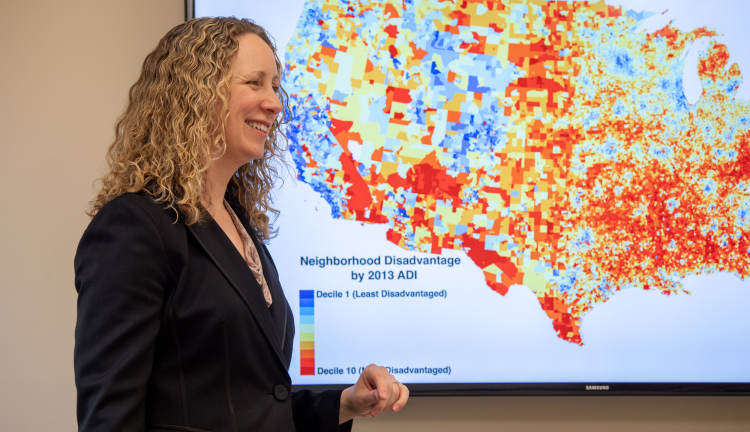Department of Medicine researchers find link between living in disadvantaged neighborhood and declining brain function

In a new article published in Neurology, Department of Medicine researchers found a correlation between living in disadvantaged neighborhoods and changes in brain structure and function that are characteristic of Alzheimer’s diseases and related dementias.
Researchers used the Area Deprivation Index, developed by Amy Kind, MD, PhD, associate professor, Geriatrics and Gerontology, to determine the neighborhood-level of disadvantage for each participant. The index ranks each neighborhood based on 17 indicators of disadvantage including income, employment, education and housing quality.
At the start of the study, the was no difference in brain volume between participants, but at the end, researchers found more brain shrinkage in areas of the brain associated with dementia in people in the most disadvantaged neighborhoods.
Other Department of Medicine researchers:
- Sanjay Asthana, MD, professor, Geriatrics and Gerontology
- Barbara Bendlin, PhD, associate professor, Geriatrics and Gerontology
- William Buckingham, PhD, MS, associate scientist, Geriatrics and Gerontology
- Lindsay Clark, PhD, assistant professor, Geriatrics and Gerontology
- Carey Gleason, PhD, associate professor, Geriatrics and Gerontology
- Sterling Johnson, PhD, professor, Geriatrics and Gerontology
- Erin Jonaitis, PhD, associate scientist, Wisconsin Alzheimer’s Institute
- Rebecca Koscik, PhD, senior scientist, Wisconsin Alzheimer’s Institute
- Ozioma Okonkwo, PhD, associate professor, Geriatrics and Gerontology
Learn more from the UW School of Medicine and Public Health.
Banner: Amy Kind, MD, PhD. Credit: Clint Thayer/Department of Medicine